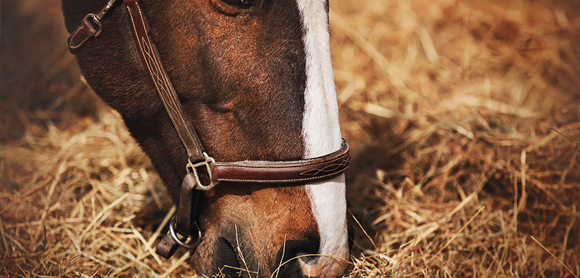
Helping your horse to live a long, healthy life
Understanding the lifespan of a horse and what factors can influence it will help to keep your horse as healthy as possible so that they can live a long life to their full potential.
How long do horses live?
On average, a domesticated horse’s lifespan is 25 to 30 years, although smaller breeds and ponies tend to live longer. There are even rare, documented cases of horses living to more than 60 years old.
Because predators aren’t a threat to the vast majority of domesticated horses, their lifespan usually depends on the following factors.
- Nutrition: if your horse gets the right amount of food and nutrients, their body can function normally for longer.
- Access to veterinary care: vaccinations will stop your horse from getting some diseases, while veterinary intervention if your horse is injured or sick will also prolong their life.
- Dental health: horses’ teeth grow for most of their life. If they wear down too much or unevenly, it can cause problems with eating. However, regular checks from an equine dental technician or vet can prevent or resolve most issues.
- Level of physical activity and workload: while some level of exercise will help to keep a horse fit and healthy, a heavy workload can lead to a shorter life and increased risk of injury.
How can I help my horse live longer?
To help your horse live a long, healthy life, you need to meet their changing needs throughout their life. Older horses require different support from a growing youngster. How you care for your horse today can affect their health and wellbeing in years to come, so consider it an investment.
How can I improve my horse's health?
The most important thing you can do is make sure your horse is getting the correct amount of nutrients and eating the right foods. Managing your horse’s weight through diet and exercise is key to keeping your horse healthy, as equine obesity puts your horse at higher risk of arthritis, laminitis, and other metabolic conditions.
Regular condition scoring and advice from your vet and a nutritionist will help you keep your horse in optimum condition. Monitor their progress if they need to lose or gain weight.
Signs of a healthy horse
You should assess your horse every day so you notice any subtle changes. Over time, this will become second nature and you’ll do it quickly and without a second thought.
- Normal temperature, pulse and respiration
It’s essential to know your horse’s vital signs. Their temperature, pulse and respiration rates at rest are a good place to start. Normal temperature is 37.2°C to 38.3°C. Normal heart rate is 28 to 44 beats per minute. The normal respiratory rate for an adult horse is 10 to 24 breaths per minute. But this can vary from horse to horse, so it’s a good idea to get an idea of what’s normal for your horse to help you recognise if something is wrong.
- Appearance and body conditionA shiny, glowing coat is a sign of good health, which comes when the horse's nutritional requirements are met and they’re well-groomed. A dull coat can be a sign of poor nutrition, parasites or general poor health. Your horse should be a good weight – not too fat or thin – with a body condition score of five out of nine or two-and-a-half to three out of 5.
- Attitude and stanceA healthy horse should appear bright, alert and interested in you, their surroundings, and other horses. Horses should stand fairly squarely with their weight evenly distributed over all four feet or resting a hindleg. Legs should be free of bumps, swellings, cuts or hair loss. There should be no heat in the feet and there should be no signs of lameness.
- Eyes, nose and gums
Your horse’s eyes should be clear, bright and free from discharge. The nostrils should be clean and free of excessive mucus – a trickle of clear liquid from the nostrils is normal.
Your horse’s gums should be moist and salmon pink in colour – any other colour is a sign to call the vet. If you gently press your horse’s gums with your thumb, they should turn white, but return to their salmon-pink colour within two seconds.
- Hydration
Check whether your horse is hydrated by pinching the skin on their neck or shoulder, pulling it away from the body and releasing it. It should return to normal within two seconds. A horse should drink 20 to 50 litres of water a day, depending on exercise and weather conditions.
- Appetite.
Reduced appetite is a sign of illness or dental issues.
- Manure and urineA healthy horse will pass manure eight to 12 times a day – they should be well-formed balls without any large chunks of undigested feed. Urine should be yellow to near colourless and is usually clear but slightly cloudy is normal, too.
Do you have any tips for how to keep a horse healthy? Head to our social media pages and let us know!



